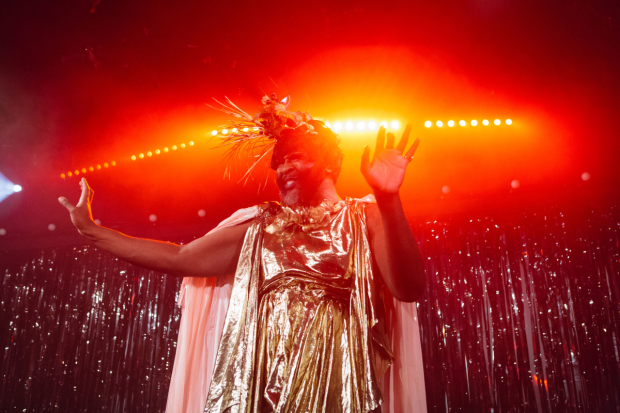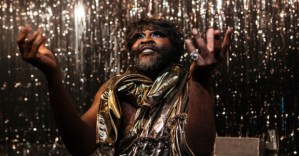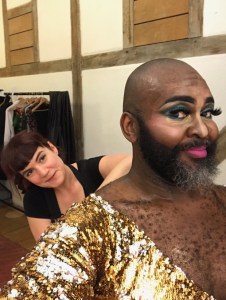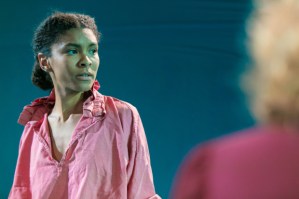Review: Effigies of Wickedness (Gate Theatre)
The Gate team up with English National Opera on thtis cabaret of songs banned by the Third Reich

© Helen Murray 2018
Why punch Nazis when you can stick it to them in song? This cabaret of songs banned by the Third Reich, conceived by opera singer Peter Brathwaite, is much more than a showcase of outlawed 'degenerate' art. It is an act of resistance, 75 years on, and one of restoration – an attempt to undo some small part of the cultural damage that was wreaked.
But Effigies of Wickedness – the name's nicked from the Nazis, and archly reclaimed – speaks to us too, and to the future. It's a study in censorship for our censorious times, and an interrogation of art's efficacy as a tool of resistance, but mostly, it warns of the backlash that happens whenever the political pendulum turns. With liberalism hanging in the balance once more, it strikes a stark, sombre note, pitched between defiance and despair. It's as profound a piece of programming as I've ever seen.
Collected from a propagandist exhibition the Nazis held in 1938, the songs land today like traces of their time: clues to the cultural context that gave rise to Hitler's regime. Some are outright subversive, like Hanns Eisler's mockery of anti-abortion laws, "Ballad of Paragraph 218". Some, like Kurt Weill's "Mussels from Margate", seem strangely innocuous, banned on the basis of religion or race. Jewish composers, jazz influences, anything experimental – all of it went onto the cultural pyre. It manages to make the Nazis look weak, trembling over a few harmless tunes.
Running chronologically, from the decadence of 1922 to the darkness of censorship's shadow nine years later, Effigies of Wickedness charts the changing mood. Upbeat songs harden and sour. Cheeky sideshow numbers like Mischa Spoliansky's titillating "Best Girlfriends" about a lesbian dalliance, give way to bitter, mournful laments. A show that starts with a celebration of queerness – "Lavender Song" delights in the brilliant biodiversity of 'bugs that grow a little different' – ends with Brathwaite bellowing Arnold Schoenberg's furious funeral song, starkly titled "Dead". Lucy McCormick vamps it up through "Sex Appeal", only for Le Gateau Chocolat to let fly with Spoliansky's torch song for the city he was forced to leave. The colour drains out of the room, as Azusa Ono's fluorescents fade to bleak, flickering bulbs: the lights going out over Europe.
Ellen McDougall's staging, a co-production between the Gate and English National Opera, repeatedly punctures exuberance with reflection. It's artfully awkward: songs stop in their tracks, silences hang in the air. One chorus line's energised pants slide into suffocating wheezes. Their bows become mechanical, until we accuse ourselves with applause. Ellan Parry's glittering design unravels, revealing a hall of mirrors that, like the first shot of Cabaret, reflects us every bit as much as it distorts.
It's a quietly potent, meditative production, one that asks whether art can ever hope to counter fascism, and you never forget the artists' fates – composers in exile, performers in camps – nor the fact that their work was written out of history. By reinstating it, Effigies lays bare the horrors of Nazism without ever representing them: no SS officers, no striped pyjamas, no salutes. We hear from the victims, not the perpetrators.
Even so, Effigies of Wickedness does little in practice that it doesn't do on paper, and the tone can tip too far into the academic – a PhD paper performed live. For all the nimbleness of Seiriol Davies' translated lyrics, early songs make you question how much art is disposable and few numbers have the power of Spolianksy's scathing "Life's a Swindle" or Friedrich Hollaender's "Münchhausen", which sends a sweet refrain of 'liar, liar, liar' drifting through the room. It ramps up at the end – "Lavender Garden" is repurposed as an anthem of defiance – but it's a matter of too little too late.



















